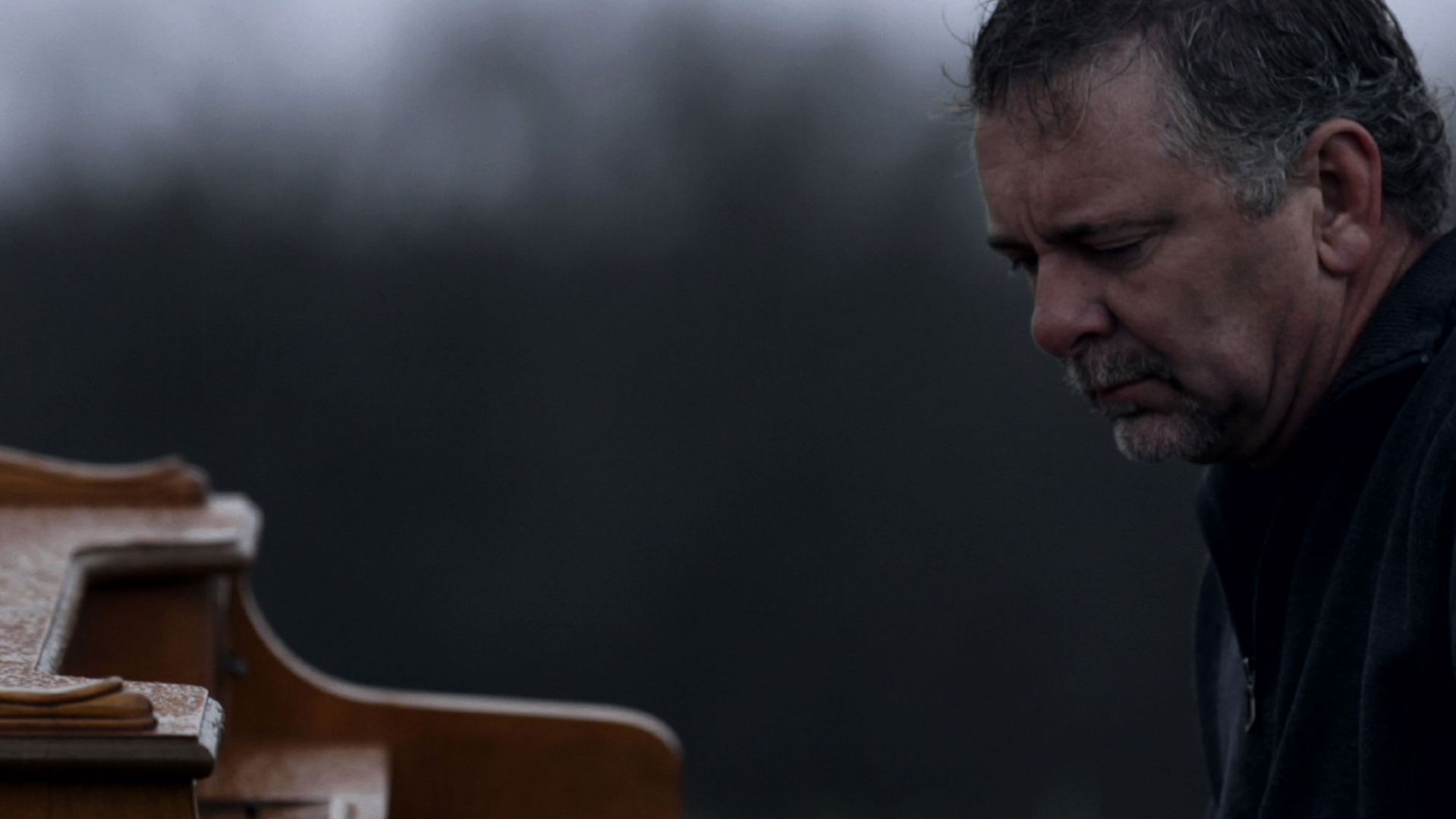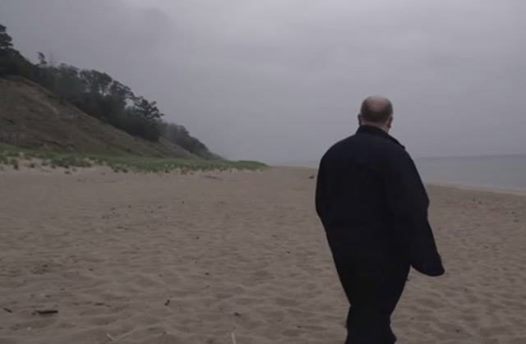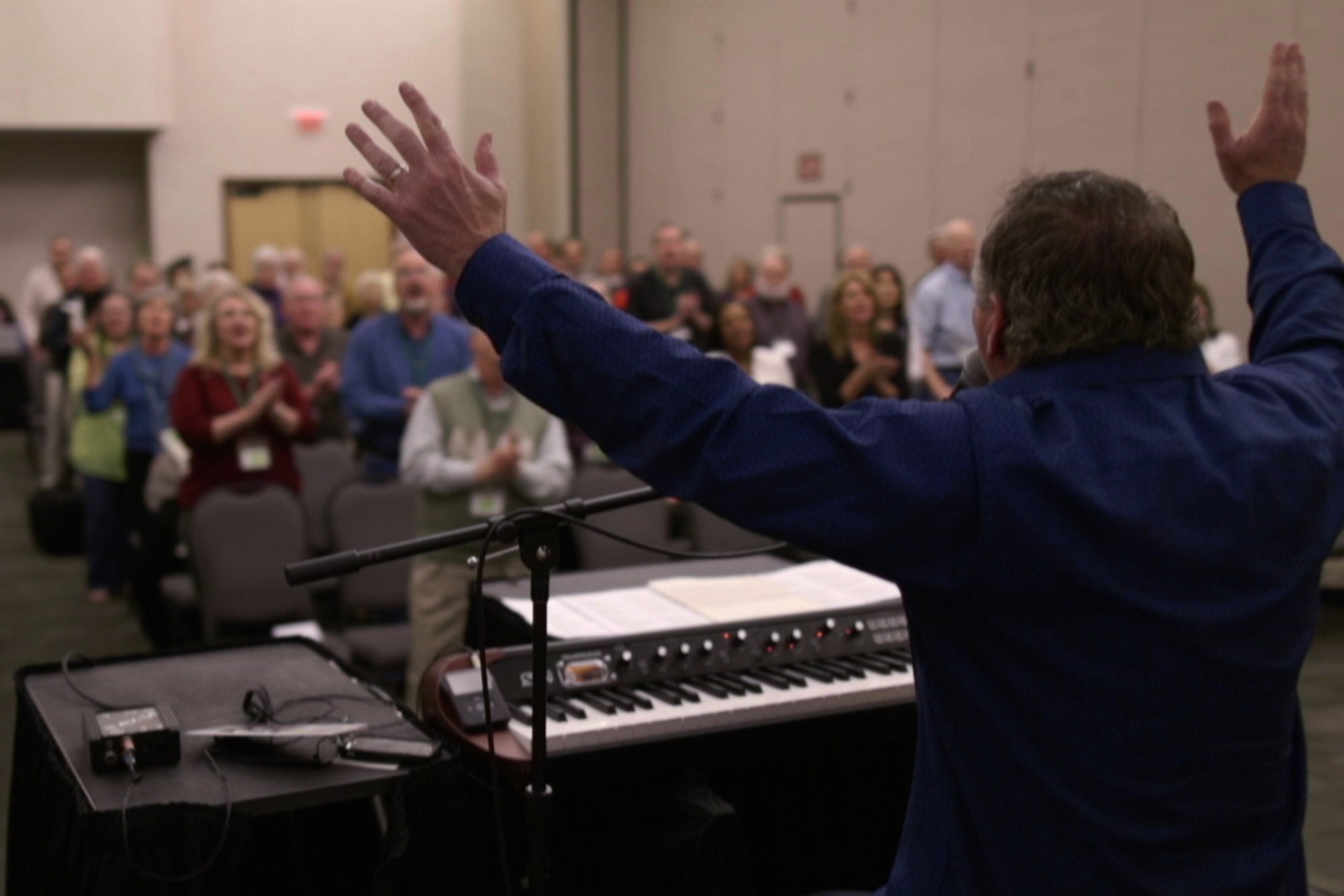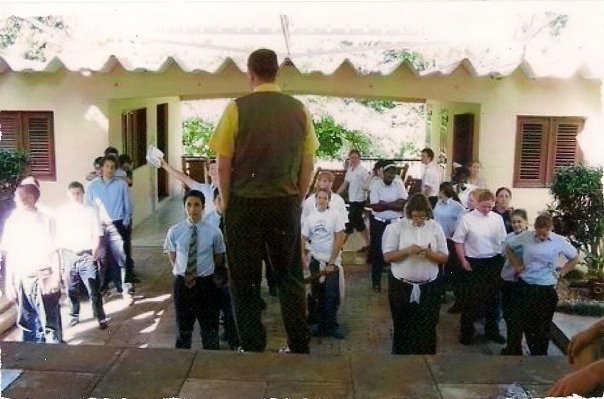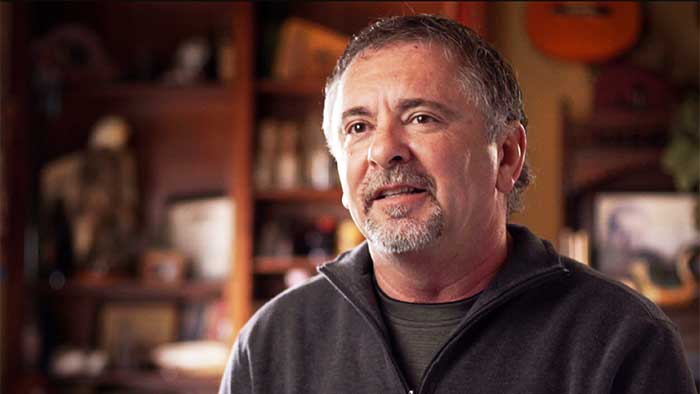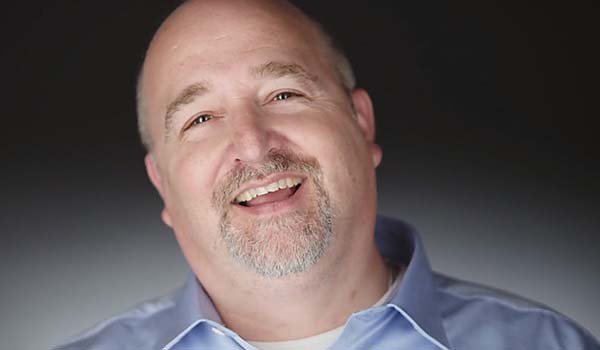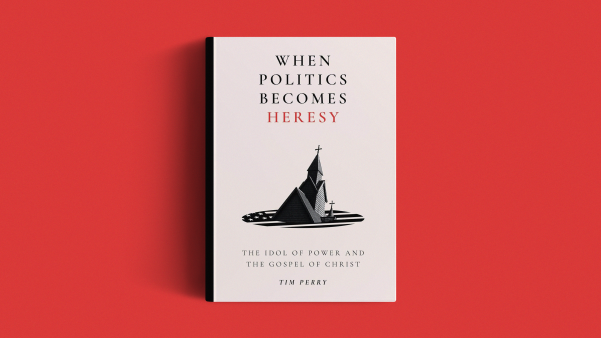“You can choose to believe or not believe that my experiences are valid. That's OK. I just ask you to keep an open mind and consider that it might be possible that this is a genuine, authentic experience, and that it’s possible for more than just me.”
So says “Rilene” near the beginning of Desire of the Everlasting Hills, a new documentary about three Catholics who chose chastity after being in homosexual relationships (watch online here). She says these words as we see images of her carrying the communion bread and wine—an important image for the film, as “communion/community” is suggested as the root object of the desires indicated in the film’s title.
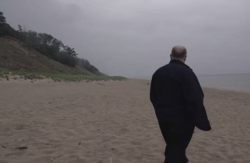
Rilene’s personal journey out of homosexuality is one thing; but the second part of her statement is most controversial: “that it’s possible for more than just me.” This comment is the furthest the film ventures in the “it’s possible for others too” direction. In an age where (particularly on issues of sexual identity) individual choices are fine insofar as they never suggest themselves as preferred models for others, Desire wisely opts to focus on three people sharing their unique-only-to-them journeys, without any statements of universality. And yet Desire—produced by Courage, Int., a Roman Catholic apostolate focused on ministry to same-sex attracted (SSA) individuals and their families—clearly wants the film to offer models of hope for Christians seeking to reconcile their sexual identity with the teachings of the church.
Each of us has a story and “whether or not this story is welcome, it deserves respect,” writes Fr. Paul N. Check, executive director of Courage, Int., on the film’s website. “It deserves respect not only for the unique mind and heart the story reveals, but also for what it may contain for others.”
The discourse surrounding “ex-gay” narratives, or narratives of SSA individuals who choose celibacy, is among the most combustible sub-genres of an already highly explosive discourse. Can a person’s sexual identity change? The question can barely be uttered in public without nuclear consequences. Indeed, to even suggest that an individual might be unhappy in an LGBTQ lifestyle, and to offer specific stories of people who say they are happier having left it (as Desire does), is highly controversial.
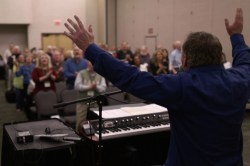
Desire is one of three new documentaries that takes up the question of change in the context of Christian homosexual identity. Sing Over Me, a film about contemporary Christian music star Dennis Jernigan’s struggle with homosexuality—is another. Kidnapped for Christ, ostensibly an expose of a Christian boarding school (“Escuela Caribe”) in the Dominican Republic, also wrestles with the “LGBTQ Christian” question by focusing on a gay high school student whose parents send him to the school with hopes (it is suggested) that he’ll come back straight.
Each documentary takes a different approach to the contested questions, and yet each is humane and empathetic. At a time when the Christian discourse on homosexuality may be shifting and all sorts of models/positions/perspectives are represented within the church, these three films represent helpful additions to the ongoing conversation.
Is Change Possible?
Sing Over Me (watch online here) is an Indiegogo-funded documentary directed by Jacob Kindberg, a 2008 graduate of Biola University, who says the film is “about hope, identity, and the transformative power of the gospel.” By letting Jernigan tell his story of being “redeemed” from a homosexual lifestyle (he’s now married to a woman and has nine kids), Sing is easily the more instantly controversial of this trio of films.
Though it doesn’t openly advocate ex-gay therapy (nor does Desire or Kidnapped), Sing does present a story of miraculous transformation that will ruffle features and incite fury from some viewers. But should Christians be skeptical too? As a people who believe in miraculous things like resurrection, sanctification, and a Holy Spirit that can renovate hearts and reorder desires, shouldn’t we be open to the possibility of changes we never thought possible, even while we acknowledge that many earnest prayers for change go unanswered? Kindberg and Jernigan think so.
Well shot and featuring Jernigan’s familiar songs throughout (“You Are My All in All,” “Nobody Fills My Heart Like Jesus"), Sing lets Jernigan himself tell his story, beginning with his childhood where, in a conservative Oklahoma church-going context, he first realized he was gay. There are a lot of tears as he shares about his struggle with depression and occasional thoughts of suicide, throughout his adolescence and college years at Oklahoma Baptist University, as he tried to reconcile his sexual orientation with his desire to live a faithful Christian life.
Kindberg never inserts himself into the story as the documentarian and doesn’t provide any leading questions or commentaries; he simply turns the camera on Jernigan and lets him testify to what he sees as God’s redemption of his sexual brokenness.

By contrast, director Kate Logan inserts herself in a very prominent, mostly unnecessary way into Kidnapped for Christ. She assumes the role of Michael Moore-esque advocate and guerrilla journalist, and the film plays like one of those disturbing John Stossel exposes on 20/20.
Logan maintains that she had no idea when she started the film that it would take a darker expose turn. In taking her camera equipment to Escuela Caribe, she thought she was making a film about “an interesting alternative therapy program with a cultural exchange element,” but the more she saw the more she was disturbed. The film ends up being a Jesus Camp-style horror show (complete with dramatically scary music and hushed covert interviews) that makes Escuela Caribe out to be a veritable hell house for gay kids and other “troubled” sorts.
The crowd-funded Kidnapped, which screened at this year’s Sundance Film Festival and aired this summer on Showtime, does not purport to be about LGBTQ advocacy as much as the dangers of boarding school abuse; nevertheless it takes a definite position on the question of whether gay Christians can or should change.
If Sing Over Me takes the view that change and redemption is possible by the power of God, Kidnapped—which has executive producer backing from openly gay Lance Bass—critiques the very notion that changing sexual orientation is necessary or viable.
Logan, who is also a recent Biola University graduate, has said that when she first went to the Dominican Republic to make her film, she believed homosexuality was sinful. But when she got to know David—the gay teenager whose parents sent him to Escuela Caribe—her views changed.
“I never once wished or prayed that he could not be gay anymore. I just couldn't,” said Logan, who now considers herself an agnostic. “Meeting him really changed my beliefs on that issue in a profound way.”
By contrast, Desire and Sing hope that by letting audiences “meet” individuals who have left homosexuality and are happier because of it, they’ll change their mind about the possibility of change.
Kindberg makes no secret that he hopes Sing will be helpful for “Christians who struggle with same-sex attraction and have given up hope of ever overcoming their temptations,” as well as for “homosexuals who are not satisfied with their current lifestyle and want change but have never believed it was possible.”

Desire clearly has a similar aim, though it doesn’t portray stories quite as dramatic as Jernigan’s. The film focuses on three individuals—Dan, Paul and the aforementioned Rilene—who tell their stories directly to the cameras, with no presence from the documentarians save a barely audible off-camera question here or there.
Though all three had lived active homosexual lifestyles for a time (in Rilene’s case, a 25-year relationship with partner Margo), each is now celibate and prefers distance from the gay or lesbian label. They are not “cured” of their SSA and they admit it’s still a struggle; but each says they’ve come to a more peaceful place now that they’ve left the lifestyle, returned to faith and chosen celibacy.
One of the benefits of a chaste life, notes Dan in the film, is “you get outside of yourself. You start looking outward and investing in others.” For him, embracing homosexuality was the safe, easy thing to do. But he likes what C.S. Lewis says in Shadowlands: “The boy chose safety. The man chooses suffering.” Dan began to look at life through the lens of suffering, and it opened up the world for him. “We're made for better stuff than what we settle for,” he says.
Paul tells a similar story. As a former male model who lived in Studio 54–era Manhattan and admits to having had thousands of sexual partners, Paul says he was “happy . . . in toyland.” But the happiness and pleasure of his former life, he says in the film’s final scene, “pales, absolutely pales to when I'm taking the body and blood of our Lord at mass.”
Communion and Community
Is the documentary form, with real, embodied people sharing their true stories, the only cinematic genre where these stories can be told? Probably. One could only imagine what the reaction would be if the Kendrick Brothers (Courageous, Fireproof), for example, made a dramatized film about the miraculous deliverance of a Jernigan-type individual out of a homosexual lifestyle. No, these stories must be told by the enfleshed individuals themselves, with minimal editorial manipulation, if they are to be taken seriously at all.

In general these films perpetuate what has become a well-established norm in modern western societies: that “what happens in the bedroom” is the private domain of individuals and is not subject to any outside entity’s perspective or interest—whether civil, religious or familial. As James K.A. Smith wrote recently in an essay on “Marriage for the Common Good,” ours is a society “where ‘private’ interests are pursued to the exclusion of the common good, as if the two are in competition and the wider community is a threat.”Such is the extent to which sexuality today resides solely in the realm of individual autonomy and personal preference, as opposed to embeddedness in community, tradition and institutions. It’s worth noting (and lamenting) that in all three of these films, the perspectives of people closest to the subjects are hardly invoked at all. In Kidnapped, David’s parents are villainized but never seen or heard from; in Desire, no friends or family are interviewed; Sing features interviews with Jernigan’s wife, parents and friends, but none of his nine children.
But it is precisely “wider community” that each of us needs to be a flourishing human being. Community, friendship and intimacy are fundamental human desires—and they are desires profoundly expressed by the subjects of these three films.
One of the most moving moments in Desire comes when Rilene discusses her former partner Margo, with whom she had a 25-year relationship. Even though she ultimately left the relationship because of religious convictions, Rilene doesn’t look back on it as a false or inauthentic experience:
“I don't want to denigrate the relationship I had with Margo and I don't want to denigrate anybody else's relationship. We all have a deep, deep need for love, and we find it where it seems to fit most.”

Desire is effective in part because, in telling the stories of Rilene, Dan and Paul, it doesn’t deny the possibility that true, sacrificial, enduring love can happen between gay partners. Nor does it suggest that a gay person’s human desires for love and intimacy are in some sense alien or abnormal. Even if the film ultimately argues for chastity over homosexual practice, it does not sugarcoat the complexity of human relationships and the various ways our fundamental longings for community get worked out.
In a post responding to the film on the Spiritual Friendship blog, Nick Roen says the film is a good reminder that for those who want to paint a positive picture of celibacy, “we must be able to show how the sacrificial love often experienced in committed sexual relationships is also available within non-sexual friendships… If we can’t offer that type positive alternative, then no one will consider celibacy as a life-giving option. And in order to present said positive alternative, we must be honest about the love that gay partners are capable of. That very love is still available within friendship!”
Understanding and presenting the family of God truly as a family—less an occasional assembly of privatized individuals than an interdependent and porous communion of brothers, sisters, parents and children in Christ—seems to be a crucial yet hitherto underemphasized approach in the church’s ministry to its SSA members. How can the church preach against homosexuality but fail to offer viable alternatives and outlets for one’s desire for intimacy and community?
In a world where people are more isolated and lonely than ever, what if the church offered outlets for deep friendship and dependable, embracing community, regardless of one’s orientation? How would this minister to people like David in Kidnapped or Dennis in Sing, whose stories of same-sex longing were so lonely and disconnected (largely out of fear) from the web of support and love that the church should provide? In a society where, as we’ve seen, notions of sexuality and relational intimacy are increasingly privatized and disconnected from the “common good” (or anything “common”), perhaps the church can be countercultural by elevating the importance of communion as a foundational concept for life in Christ.
This is the approach proposed in Desire, which ends with each of its subjects narrating their return to the communion of the Catholic church. It’s a powerful thing to hear Rilene talk of her first steps back into church (“Bless me father for I have sinned. It has been 35 years since my last confession . . . ”) and the flood of grace she feels upon returning. “I'm safe. I'm home,” says Rilene as the music swells and Malick-esque imagery fills the screen to close the film.
Though Kidnapped, Sing and Desire differ in their approaches to the question of what to do if you’re Christian with SSA, I think they would all agree that healing and restoration—whatever it looks like—happens best in communal rather than solitary contexts. And it is precisely in church communities that these films ought to be shown and these stories heard.
Brett McCracken is a Los Angeles-based writer and journalist, and author of the books Hipster Christianity: When Church and Cool Collide (Baker, 2010) and Gray Matters: Navigating the Space Between Legalism and Liberty (Baker, 2013). You can follow him @brettmccracken.

